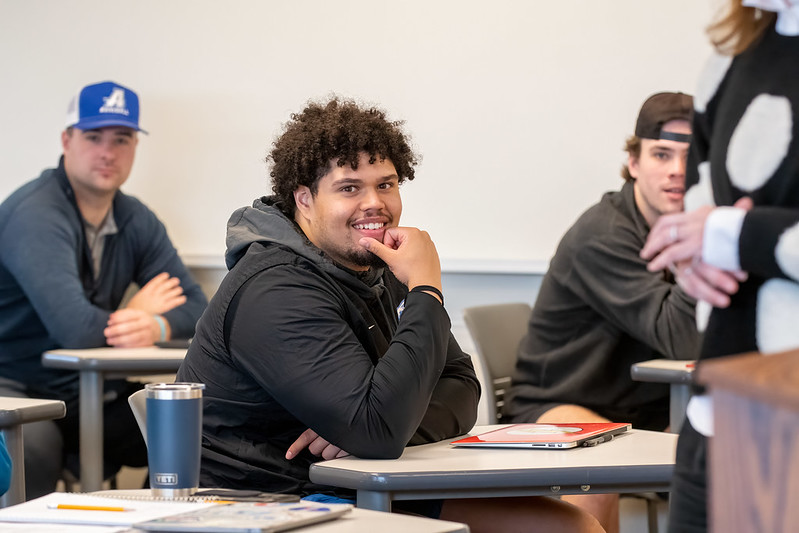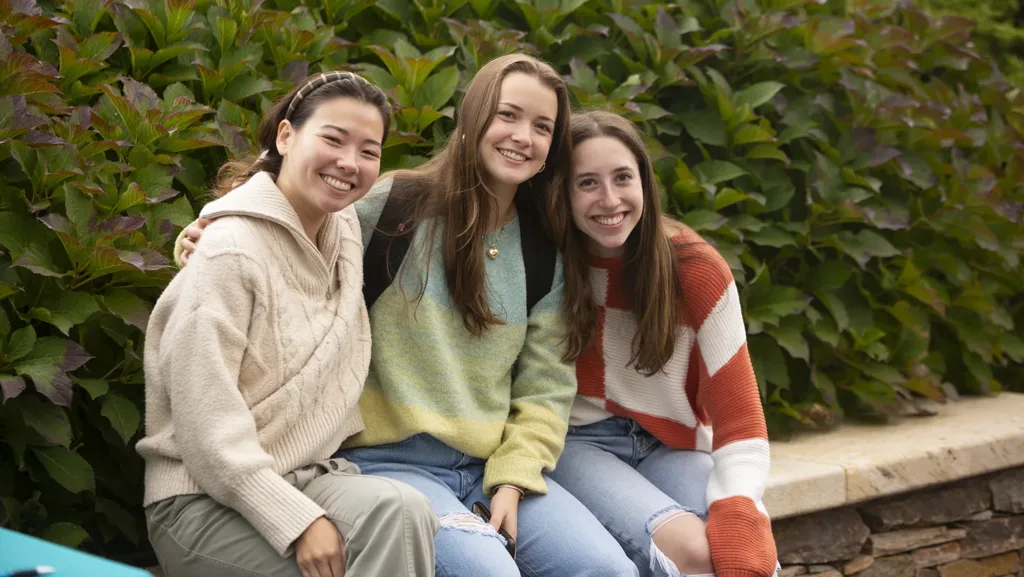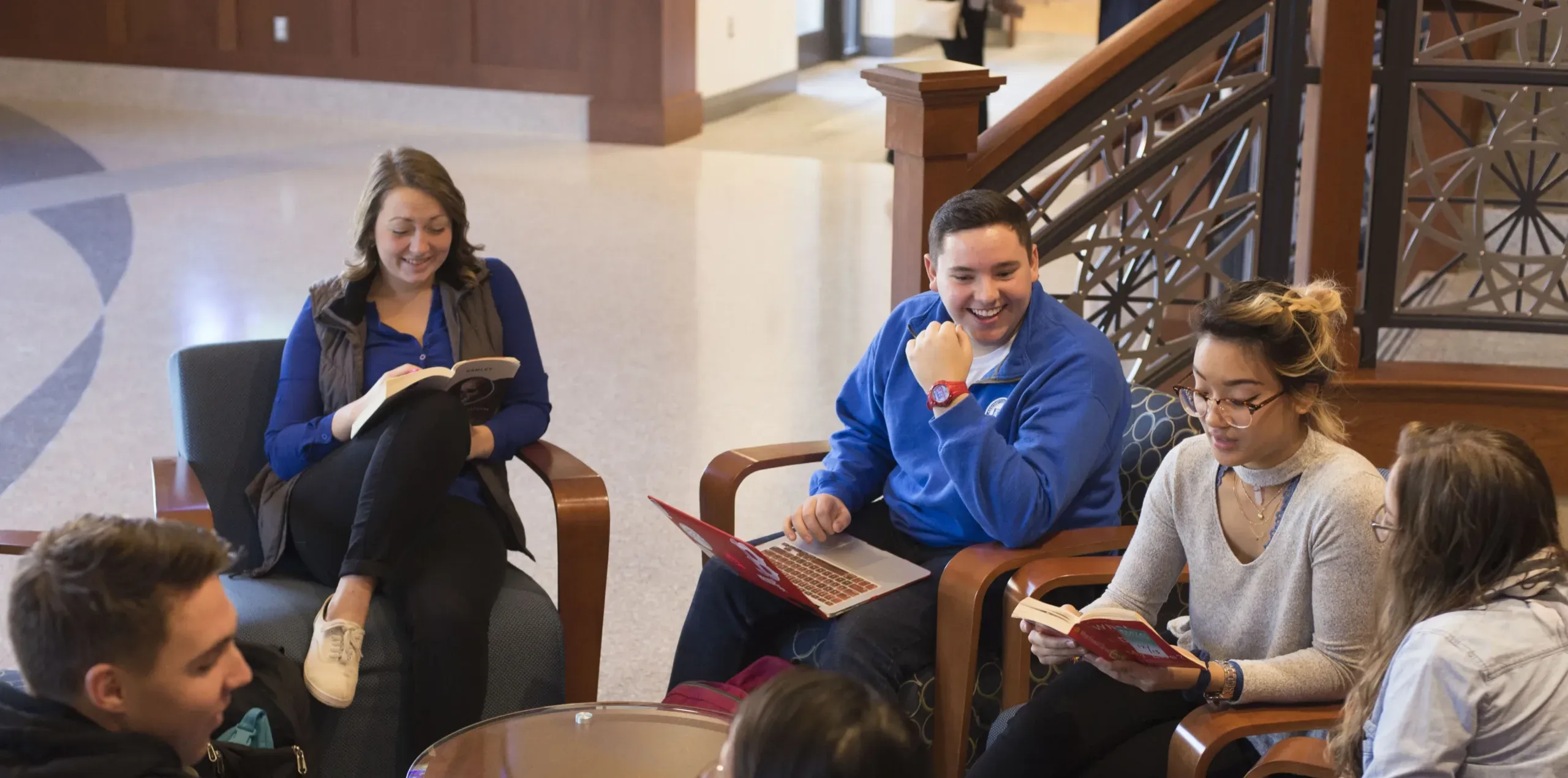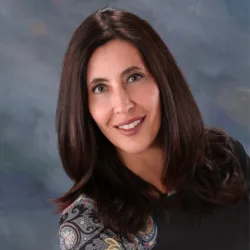The Center for Civic Friendship builds upon Augustinian values to strengthen its core commitment to “seeking truth in the company of friends.”
The purpose of civic friendship is to prepare students to flourish as thoughtful citizens with a strong dedication to the common good. Teaching students how to negotiate differences and build positive relationships through attentiveness and care for others will prepare graduates to become productive members of a well-functioning society while also acquiring the skills necessary to build that society. Developing the capacity to hear and listen to others, Assumption students will acquire the skills and disposition for respectful discourse, even when they may disagree. Friendship means facing your differences with care for the other. The ability to listen, despite strongly held differences of opinion, will be a hallmark of the friendship building we aim to foster.
Civic Friendship Scholars Program
This unique $10,000 scholarship and leadership initiative is designed for students who are committed to promoting mutual respect, constructive dialogue, and active engagement in the common good within communities.
The Civic Friendship Scholars Program offers selected students the opportunity to contribute to fostering a community of respect, attentiveness, and civic-mindedness in the tradition of Assumption’s Catholic liberal education.


Civic Friendship Ambassador Award
Assumption University invites applications for Civic Friendship Ambassador Awards. Recipients will receive a $2,000 scholarship and play an active role in helping launch and shape The Civic Friendship Playbook. Ambassadors will work with campus partners to design activities, pilot new ideas, and help refine The Civic Friendship Playbook based on real student experience.
Events Hosted and Sponsored by the Center for Civic Friendship
Globally Renowned Peacebuilder and Conflict-Resolution Expert Alice Nderitu Appointed Civic Friendship Fellow at Assumption University
Nderitu has dedicated her life to building peace in some of the world’s most divided regions, including the Balkans, Nigeria, Myanmar, Kenya, and South Africa. As the inaugural Civic Friendship Fellow, she brings unparalleled global experience to Assumption’s mission of forming students who seek truth in the company of friends.
Center for Civic Friendship Hosts Inaugural Event Featuring Panelists from New England Colleges
On November 7, in the wake of the 2024 presidential election, Assumption University’s Center for Civic Friendship hosted its inaugural event, a panel discussion titled “The Prospects for Civic Friendship Today”.
Boston College Associate Professor of Theology Brian Robinette delivered a talk entitled “Contemplation and the Art of Friendship in Polarized Times.”
The talk examined the spiritual practice of contemplative thought and proposed that the cultivation of interior life may be the key to openness and friendship with others.


